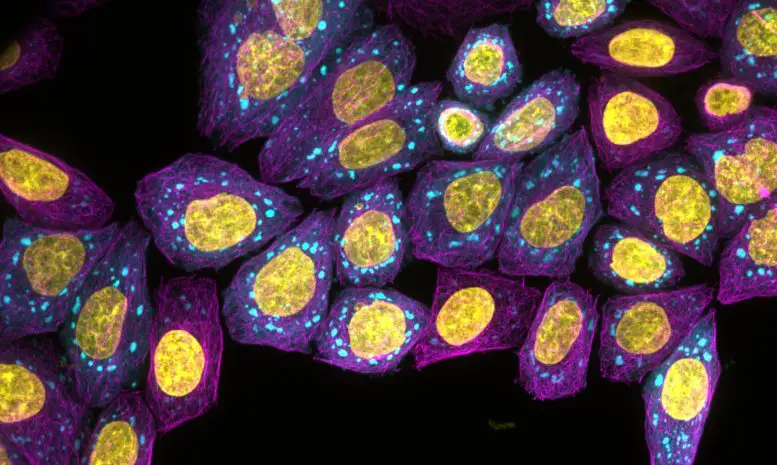Artificial Intelligence can ‘predict’ neurodegenerative diseases such as Alzheimer’s and cancer.
Scientists have discovered that powerful algorithms like those used by Netflix, Amazon, Facebook, and Facebook can “predict” the natural language of neurodegenerative diseases such as Alzheimer’s and cancer.
We fed in the big data from decades of research to see if artificial intelligence could make more advanced discoveries than humans.
Researchers at the St John’s College University of Cambridge discovered that machine-learning technology could decipher the “biological language” of Alzheimer’s and cancer.
Their groundbreaking study was published in the journal PNAS on April 8, 2021. It could be used to “correct the grammar errors inside cells that cause diseases,”
Professor Tuomas K. Knowles, the lead author and Fellow at St John’s College, said, “Bringing machine learning technology into research into the neurodegenerative disease and cancer is a game-changer.” The ultimate goal is to use artificial intelligence to develop targeted drugs that will dramatically reduce symptoms or prevent dementia from ever happening.
Netflix and Facebook use powerful machine-learning algorithms that make educated guesses about what people will do next. Siri and Alexa, voice assistants that recognize individuals and ‘talk back’ to them instantly, can also be used by Siri and Alexa.
Dr. Kadi LIIS Saar, the first author of this paper, was a Research Fellow at St John’s College and used machine-learning technology similar to that to train a large-scale language model. This model looked at what happens to proteins in the body when they go wrong.
Scientists don’t know how many proteins are involved in the human body. We used a neural net-based language model to learn the language of proteins.
The program was explicitly asked to teach the language of shapeshifting biomolecular condensation-sates – drops of proteins found inside cells – which scientists need to fully understand to unravel the language of biological malfunction and function that can cause cancer and neurodegenerative diseases such as Alzheimer’s. It learned from scientists without being told what they have discovered over many decades about language proteins.
Proteins are complex, large molecules with many essential bodily roles. Proteins do most of the work within cells and are necessary for organ and tissue structure, function, and regulation. Antibodies, for instance, protect the body.
Researchers believe that there are many other neurodegenerative diseases.
Alzheimer’s disease is when proteins become rogue and form clumps that kill healthy nerve cells. It affects 50,000,000 people around the world. These potentially harmful masses of proteins are known as aggregates. A healthy brain has an effective quality control system to dispose of them.
Scientists believe disordered proteins can also form condensates, liquid-like drops of proteins that don’t need a membrane. They merge freely. Unlike irreversible protein aggregates, protein condensates that cannot be reformed can form and transform. They are often compared with blobs made of shapeshifting wax found in lava lamps.
Professor Knowles stated that protein condensates were recently the focus of scientific attention because they control key cell events such as gene expression, which is how DNA is transformed into proteins, and protein synthesis, which is how cells make proteins.
These protein droplets may have defects that can cause cancer. If we are to fix the grammatical errors in cells that lead to disease, it is crucial to use natural language processing technology to help us understand the molecular origins.
Dr. Saar stated that the algorithm fed all the data on known proteins to learn the language of proteins. This is the same way these models learn human language, and WhatsApp can suggest words for you to use.
“Then, we could ask it about the grammar that allows certain proteins to condense inside cells.” This is a complex problem, and we will be able to unlock the rules of the disease language.
Machine-learning technology rapidly develops due to increased data availability, improved computing power, and technological advancements resulting in more robust algorithms.
Future research on neurodegenerative diseases and cancer could be transformed by machine learning. Machine learning allows scientists to discover more than what is known about the conditions and even speculate about them.
Dr. Saar stated that machine learning does not have to be limited by what scientists consider scientific exploration targets. This will allow for new connections that we may not have even imagined. It’s fascinating.
To allow more scientists to benefit from the advances made, the network has been made accessible to all researchers.

